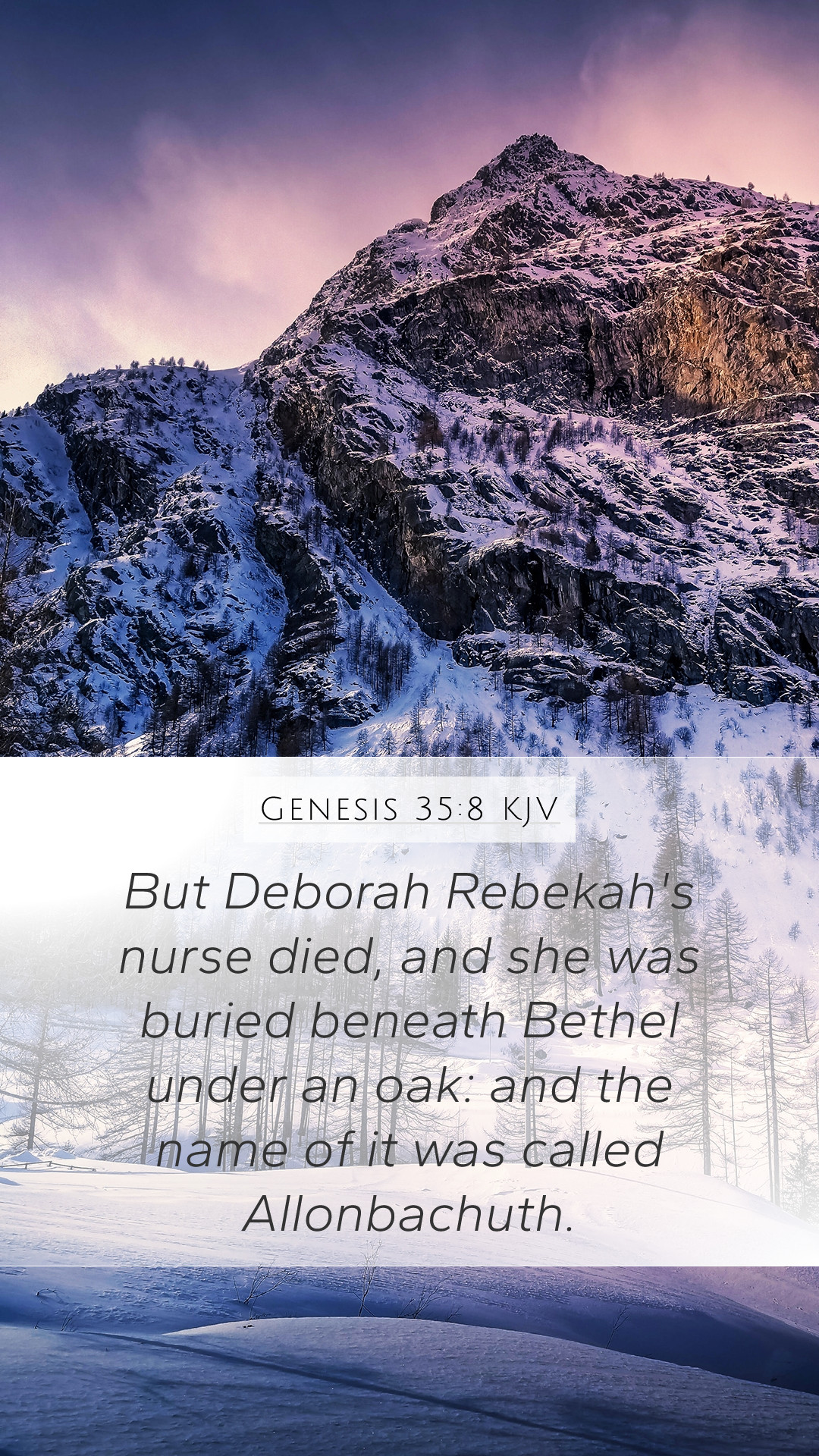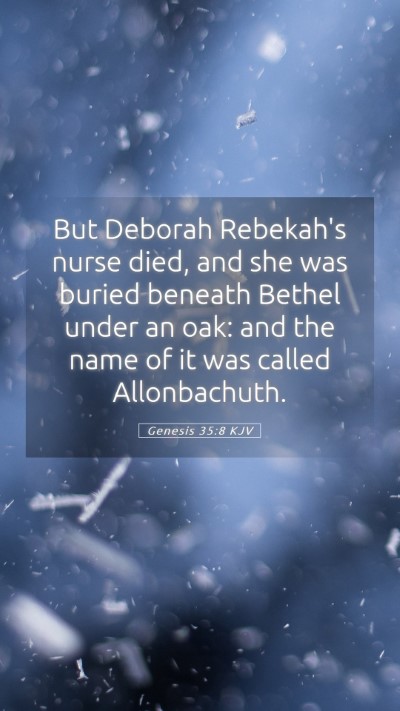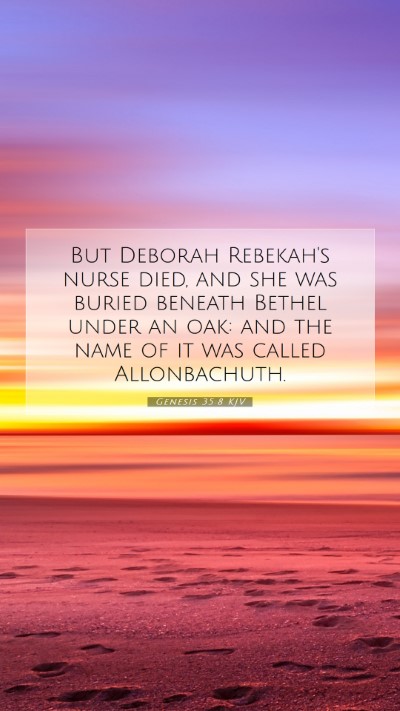Bible Verse Explanation of Genesis 35:8
Genesis 35:8: "But Deborah, Rebekah’s nurse, died, and she was buried under the oak outside Bethel. So it was named Allon Bacuth." (NIV)
Overview
This verse, although brief, carries significant emotional weight and historical context that can enrich our understanding of Scripture. The death of Deborah, the nurse of Rebekah, holds layers of meaning that reflect on family, legacy, mourning, and geographical significance.
Bible Verse Meanings
This passage invites profound Bible verse interpretations that can inform Bible study insights. It marks the end of an era, symbolizing loss and memory intertwined with family history.
Significance of Deborah
Deborah’s role as Rebekah's nurse reflects her intimate connection to Jacob’s family. Commentaries like that of Matthew Henry emphasize the importance of caregivers:
- Matriarchal Presence: Deborah signifies the enduring impact of maternal figures, representing nurturing and support.
- Historical Context: In ancient times, these caregivers were pivotal in family dynamics, often becoming trusted advisors within the household.
Mourning and Burial
The burial of Deborah under an oak outside Bethel speaks to the rituals surrounding death. Albert Barnes notes:
- Symbolism of Oaks: Oaks often represent strength and endurance in biblical narratives, suggesting that her memory will remain strong.
- Place of Mourning: The act of naming the place Allon Bacuth indicates an acknowledgment of grief, anchoring memory in a physical location.
Understanding Scripture
The passage serves as a reminder of the importance of relationships. It showcases how losses impact not just individuals but families and communities.
Reflection on Legacy
Deborah’s death can lead to reflections on legacy, guiding us to consider:
- What values do we inherit from those who cared for us?
- How do we remember those we have lost?
Application of Bible Verse
This verse can be applied in various contexts of life – from personal loss to understanding familial bonds. Adam Clarke suggests that we can find solace in recognizing the continuity of life despite losses.
Practical Lessons
As we reflect on this passage during online Bible study or group discussions, here are some practical lessons:
- Value Family Connections: Appreciate the roles that family members play in shaping our lives.
- Practice Mourning: Acknowledge the need to mourn and remember those who have passed.
- Recognize Places of Memory: Creating spaces that honor our loved ones can help in healing.
Cross References
Genesis 35:8 connects with several significant verses, providing a broader understanding of loss and legacy:
- Genesis 49:31: Refers to the burial place of the patriarchs.
- Genesis 24:59: Discusses the importance of family ties.
- Genesis 28:19: Highlights the significance of Bethel as a sacred place.
Conclusion
Overall, Genesis 35:8 provides a poignant reflection on loss, memory, and the enduring influence of those who care for us. In studying this verse, we can deepen our understanding of Scripture and enrich our Bible study resources.


